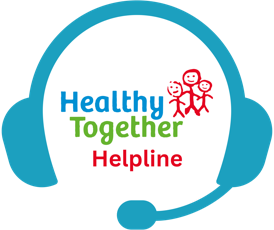You may have heard that breastfeeding your baby is the healthiest choice for your baby and you. Did you know that breastfed babies have fewer:
- tummy upsets
- chest infections
- urinary infections
- ear infections
- allergies
They are less likely to develop:
- diabetes
- obesity
- Sudden Infant Death Syndrome (SIDS)
Mothers who have breastfed have reduced rates of:
- breast cancer
- ovarian cancer
- osteoporosis in later life
- heart disease
- diabetes following Gestational diabetes.
Feeding your baby is may be a new skill that you need to learn or perhaps is something that you have done before if you have had a child before. Make sure you have the current information around breastfeeding. You can talk about infant feeding with your midwife to prepare for after the birth. The Mothers and Others Guide is a great magazine to remind you about the information the midwife may give you. Do ask for one if you have not had it yet.
Things which may help you prepare for feeding and looking after your baby:
- You may want to avoid using drugs which could affect your baby’s ability to breastfeed well (ones that make them sleepy)
- Uninterrupted skin to skin contact after the birth of your baby really does help
- Think about giving a first breastfeed of colostrum even if you are planning to bottle feed. Let us know if you do not want your baby to feed at the breast.
- Read this leaflet on expressing breast milk colostrum for when your baby is born
- Breast milk is the recommended food for all babies, but especially for babies who may be at risk of being poorly at birth
- Expressing and storing colostrum before birth can mean your baby does not need to be given infant formula after birth
- Expressing can help get breastfeeding off to a good start
- Getting familiar with handling your breasts in pregnancy by expressing can help you to feel more comfortable with breastfeeding after your baby is born
- Early weeks are all about you and your baby getting to know each other. If you have decided to bottle feed then it is important for both you and your baby that you and your partner are the only ones to feed your baby
- If you are breastfeeding, you can spend lots of time getting use to feeding and holding your baby so feeding is comfortable
- Can others help around the house and guests put the kettle on themselves or som so you have more time to concentrate on getting feeding off to a good start?
Leicestershire Partnership NHS Trust is responsible for the writing, publishing and updating of the content on this page.

Leicestershire Partnership NHS Trust runs a confidential secure text messaging service for parents of children aged 0-19 years called Chat Health. The service operates Monday to Friday between 9am and 5pm, excluding bank holidays. All texts will be responded to by a public health nurse (health visitor/school nurse) within 24 hours. Outside of the service working hours, you’ll receive a message back to inform you that your text will be responded to once the line reopens.
-
Leicester City:
text
07520 615381 -
Leicestershire & Rutland:
text
07520 615382

Leicestershire Partnership NHS Trust runs the Healthy Together Helpline for parents and carers in Leicester, Leicestershire and Rutland. The Helpline’s qualified health and administrative professionals offer easy to access, safe and free advice, support and signposting. Calls are answered from 9am – 4.30pm on weekdays, excluding bank holidays. Calls are charged at the same rate as calling a standard landline number.
-
Leicester, Leicestershire & Rutland:
call 0300 300 3001

Should you require urgent health advice in the meantime, please contact your GP, visit an NHS walk-in centre or call NHS 111. For emergencies, dial 999 or visit A&E.





